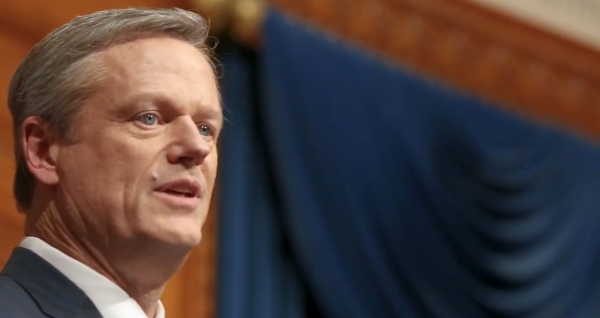
The Boston Globe is reporting that Massachusetts Gov. Charlie Baker’s administration “is resisting a mounting number of court orders from judges charging that it overstepped its legal authority, or misinterpreted the law, when it pushed to strip firearm licenses from hundreds of people it previously cleared to own a gun.”
The newspaper said more than 300 licenses have been affected. The story notes that among those whose rights have been stripped is a former state trooper, and at least five gun owners who have successfully sued to get their rights restored. There have been appeals and some of those have been successful.
But according to Jim Wallace, executive director of the Massachusetts Gun Owners Action League (GOAL), the Baker administration may not be so much at fault for the problem as is the federal Bureau of Alcohol, Tobacco, Firearms and Explosives (ATF) and federal law. According to the story, the state Firearms Licensing Review Board is responsible for deciding whether Massachusetts residents who have been convicted “of certain misdemeanors carrying sentences of up to 2 ½ years should have their rights to own a gun fully restored.” But ATF, the story said, “citing decade-old case law, has argued for years that allowing those people to be licensed violates federal law…Under federal statute, those convicted of misdemeanors that carry potential jail time of more than two years are barred from owning a gun.”
Therein lies the problem. According to Wallace, who spoke with Liberty Park Press Monday via telephone, the state has advised police chiefs that they have the authority to revoke licenses, and if they choose not to, the state will simply withhold those licenses upon renewal. After that, people can appeal their denials, which has happened. Wallace said the dilemma is “convoluted.”
He explained that the problem is with the state penalty for misdemeanor driving under the influence (DUI). It exceeds two years, which essentially puts every state DUI conviction on the ATF radar if a gun owner is involved.
Ultimately, state lawmakers may have to find a solution, Wallace indicated.
Under federal law, ATF had been able to conduct “restoration of rights” investigations but Congress has withheld funding for that program for several years.
In the middle of this is the tale of a retired state trooper who had been convicted of drunken driving in 1998. The trooper had been on the job more than 30 years, including serving as a detective lieutenant and commander of the agency’s “Crime Scene Services Unit.” She reportedly retired honorably, but her license was stripped.
A private citizen who had also been convicted of misdemeanor operating under the influence had “successfully petitioned the state board in 2006 for his license,” the report also noted.
There is something else, too. According to the story, “attorneys and some police say the state’s stance is all the more perplexing given its decision to uphold state law in other areas, such as marijuana legalization, when it directly contradicts federal law.”
Washington and Colorado are two states that legalized recreational marijuana use four years ago. Both states are dominated politically by liberal population centers that, as the situation in Massachusetts reflects, seem selective about which laws they want to see enforced and those they would rather ignore.
Under federal law, marijuana use is still a crime. Even the use of medical marijuana can cost someone their right to have a firearm.
Meanwhile, the city council of a small town in north-central Washington is considering declaring their city a “Second Amendment sanctuary” for gun owners following the passage last month of anti-rights Initiative 1639, now being challenged in federal court.
Perhaps not coincidentally, since the measure passed, the state Department of Licensing reported another increase in the number of concealed pistol licenses now active. November saw 2,934 new CPLs added to the rolls, bringing the total number up to 605,216 which may seem remarkable in a state that voted rather “blue” last month.
All of those license holders went through background checks. Washington is a “shall issue” state and that may be the next target of Seattle-based anti-gunners who seem determined to roll back gun rights at the same time Seattle officials are still pushing the notion of “safe injection sites” for heroin users, which also is contrary to narcotics laws.
———————————–
RELATED:
While Left Focuses on Guns, Are They Ignoring Drug Overdoses?
Exercise in Hypocrisy: Liberals Rip Top Cop for Ignoring Gun Law